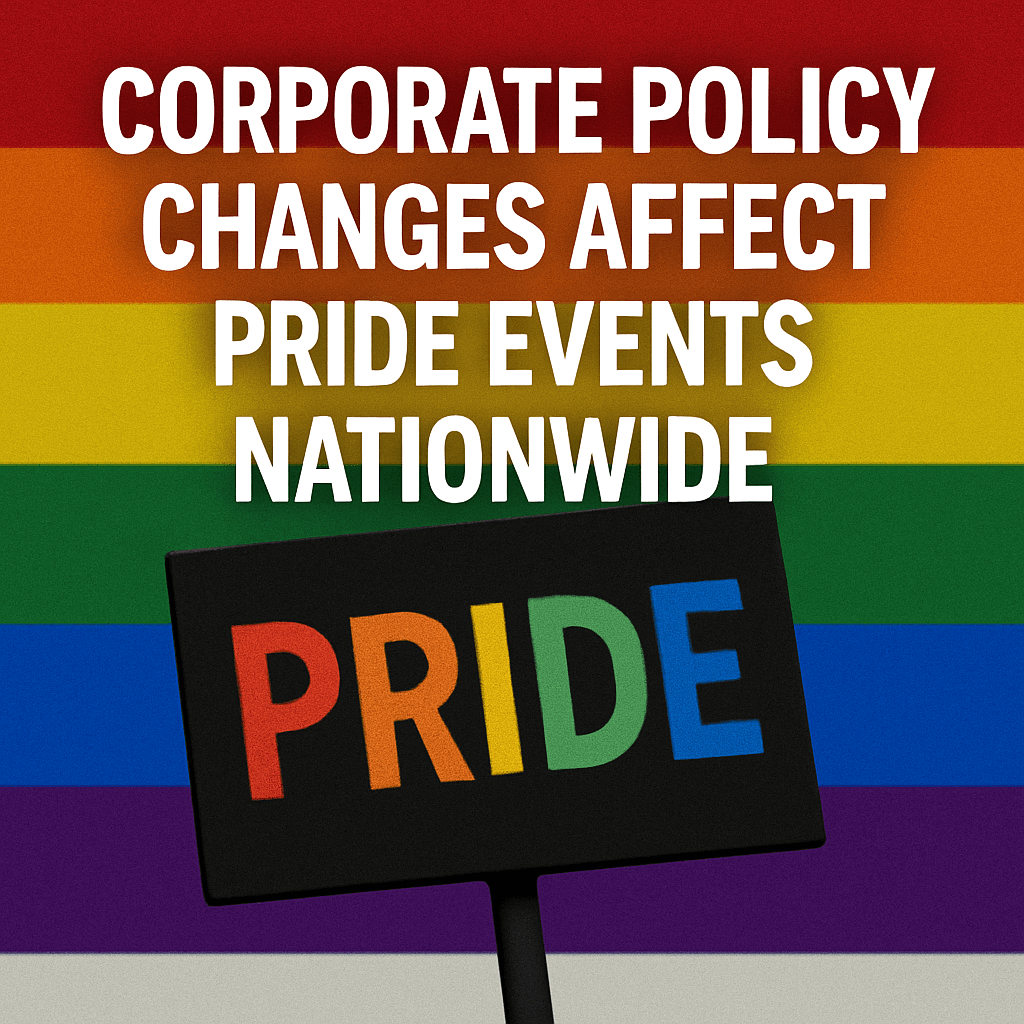Corporate Policy Changes Affect Pride Events Nationwide

As Pride season approaches, many LGBTQ+ advocacy groups in the United States are grappling with significant budget shortfalls due to the withdrawal of corporate sponsorship. Major companies such as PepsiCo, Nissan, Anheuser-Busch, and Diageo, which have historically supported such events, have either scaled back their contributions or ceased funding entirely. This shift raises important questions about corporate America’s commitment to diversity, equity, and inclusion (DEI) initiatives, particularly in the context of changing political landscapes.
Significant Financial Gaps for Pride Organizations
Many organizations reliant on corporate donations are facing unprecedented financial challenges. For instance, San Francisco Pride, recognized as one of the largest LGBTQ+ celebrations in the U.S., has reported a budget deficit of approximately $200,000 after the exit of several key sponsors. Similarly, Kansas City Pride is grappling with a similar setback, losing around $200,000, equivalent to half of its annual operating budget.
New York City’s Heritage of Pride, the body coordinating NYC Pride celebrations, is in urgent need of funds to address a staggering $750,000 budget gap, prompting immediate fundraising efforts. Anheuser-Busch’s decision after a long-standing commitment to sponsor PrideFest in St. Louis is another indicator of this trend, leaving local organizers with a $150,000 deficit.
Responses from Pride Organizations
In light of these financial challenges, many Pride events are reassessing their programming. Organizers are increasingly opting to cancel dance parties, reduce the number of stages, hire less expensive headliners, and eliminate complimentary food and T-shirts for volunteers. However, the core celebrations—celebrated for their history, culture, and activism—are intended to proceed as planned.
In San Francisco, this year’s Pride theme “Queer Joy is Resistance” emphasizes resilience amid adversity. New York’s theme, “Rise Up: Pride in Protest,” captures the spirit of advocacy that is necessary more than ever. Similarly, Boston has adopted the theme: “Here to Stay!.” Each theme reflects the growing necessity for solidarity and activism in light of corporate retractions.
Changing Corporate Landscape and Consumer Expectations
Recent shifts in corporate engagement with social issues reflect broader cultural changes. Analysis by marketing experts suggests that companies are forced to adapt to consumer sentiment, especially given the balancing act between brand activism and backlash. Amir Grinstein, a marketing professor at Northeastern University, states that companies are reactive to changing public perceptions, which have evolved considerably since the surge of brand activism following the 2015 Supreme Court ruling on same-sex marriage.
Research conducted by Barbara Kahn from the Wharton School indicates a notable increase in the percentage of consumers preferring companies to maintain apolitical stances. The trend suggests a growing dichotomy among consumers; while some seek to support businesses that engage with social issues, others prefer to disengage from brands they perceive as overly political.
Corporate Decisions Reflecting Broader Legislative Trends
A significant aspect of this corporate retreat relates to the political environment, particularly the push for limiting DEI initiatives and LGBTQ+ rights in several Republican-led states. Following executive actions by former President Trump aimed at rolling back transgender protections, many companies faced intense scrutiny over their DEI commitments. Consequently, we have observed key sponsors, like Meta, sever partnerships with Pride organizations due to their reduced focus on DEI goals.
This pattern of divestment has led to a series of Pride organizations distancing themselves from companies facing backlash over their approach to inclusivity. For instance, Twin Cities Pride ended its corporate partnership with Target after the retailer reassessed its DEI commitments following public controversies.
New Avenues for Support: Community Engagement and Fundraising
In response to the withdrawal of corporate support, grassroots initiatives and community fundraising efforts have surged. For example, a crowdfunding campaign by Twin Cities Pride to cover a $50,000 shortfall exceeded expectations, raising over $89,000 from individual and local donors. Similarly, San Francisco Pride received donations totaling $55,000 from local foundations, demonstrating a shift towards community-based support systems.
“This isn’t the first year that there’s been an inflammatory climate around Pride,” noted James Moran, a spokesperson for KC Pride. “We know that our community is looking for spaces that are meant for us, where we can celebrate but also process what’s going on and build our own support networks.”
Conclusion
The evolving relationship between corporations and Pride organizations poses significant challenges, yet it also opens up opportunities for community engagement and support. As Pride events continue, the emphasis on resilience and activism is vital not only in celebration but also in advocating for inclusivity and equitable policies in society.
“Writing a check to a nonprofit and supporting a nonprofit with no strings attached is stepping up to the plate,” said Chris Piedmont, spokesperson for NYC Pride, highlighting the importance of direct community engagement.
Source: fortune